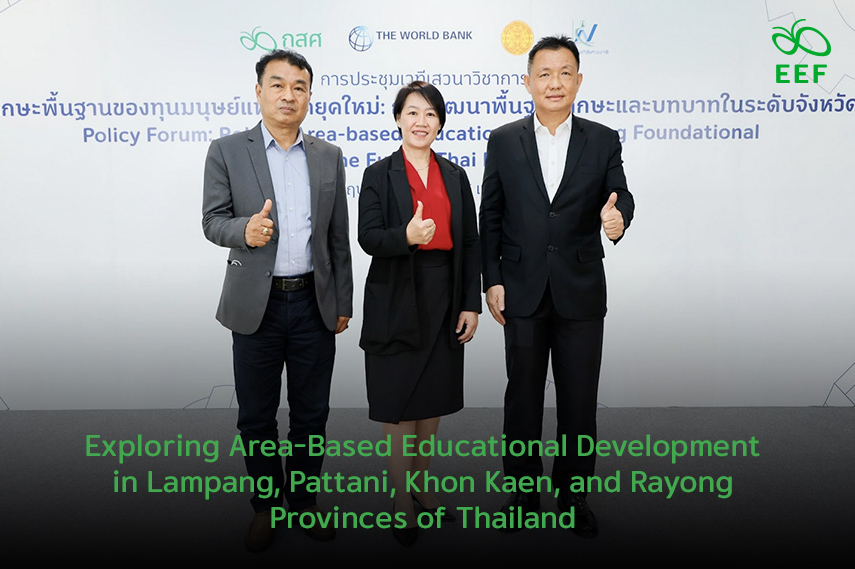
Revolutionizing Education in Lampang: Nurturing Foundation Skills for a Bright Future
Education plays a crucial role in shaping the future of societies, and it is essential to foster foundational skills starting from early childhood. In Lampang Province, Dr. Wiyada Lemtrakul, Dean of the Faculty of Education, Lampang Rajabhat University, shared valuable insights on the integration of these skills into all levels of education over the past five years “There is the need for a comprehensive system overhaul, including tertiary education, and advocated for collaboration with entrepreneurs to design a curriculum that integrates work and learning experiences.” Moreover, the importance of extracurricular activities such as volunteer camping and additional skill development programs are necessary to fill any gaps in the education system.
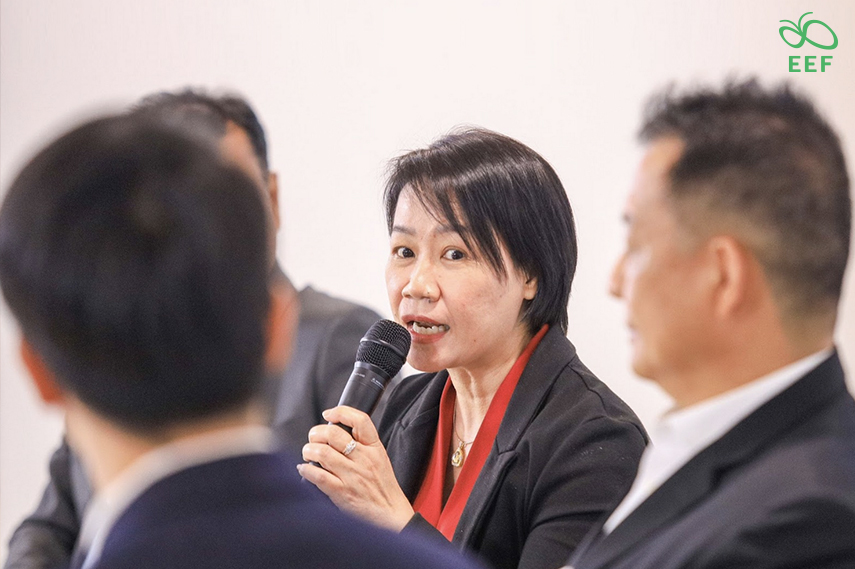
Dr. Wiyada Lemtrakul, Dean of the Faculty of Education, Lampang Rajabhat University
Lampang Province established the Council for Education, consisting of stakeholders from various disciplines and agencies, to promote equality in education and support children in need. This coordinating body utilizes IT data to identify and assist disadvantaged children or those at risk of dropping out. The Lampang education assembly and Lampang University further facilitate collaboration among tertiary education institutions, the education faculty, and graduates willing to contribute to educational initiatives.
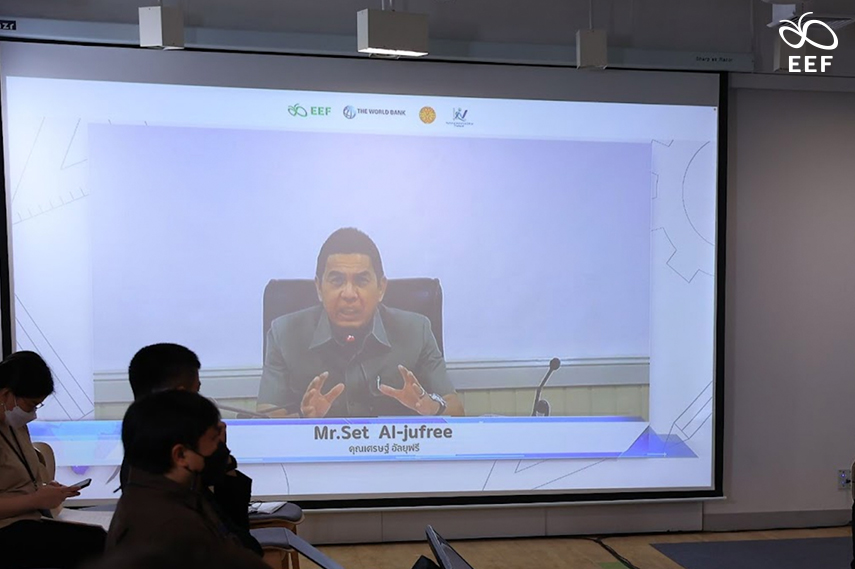
Mr. Set Alyufe, a Governor of Pattani Provincial Administrative Organization
Addressing Educational Challenges in Pattani: A Focus on Youth Development
In Pattani Province, Mr. Set Alyufe, a Governor of the Pattani Provincial Administrative Organization, emphasized the significance of developing foundational skills for youth and children. While the region possesses rich social, historical, geographical, and intellectual resources, their effective utilization for the area’s benefit remains challenging. Efforts are being made to ensure primary and secondary school graduation, enhance the capacities and skills of students, and address issues such as poverty, dropout rates, and youth unemployment. Pattani focuses on balancing the curriculum between religious education and other essential skills to overcome the challenges posed by different educational systems and parental expectations.
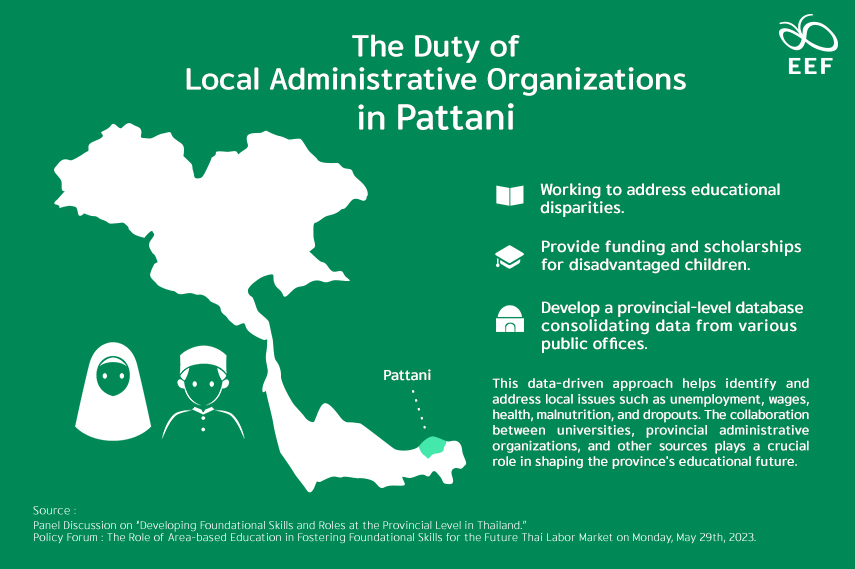
Local administrative organizations in Pattani are actively working to address educational disparities, provide funding and scholarships for disadvantaged children, and develop a provincial-level database consolidating data from various public offices. This data-driven approach helps identify and address local issues such as unemployment, wages, health, malnutrition, and dropouts. The collaboration between universities, provincial administrative organizations, and other sources plays a crucial role in shaping the province’s educational future.
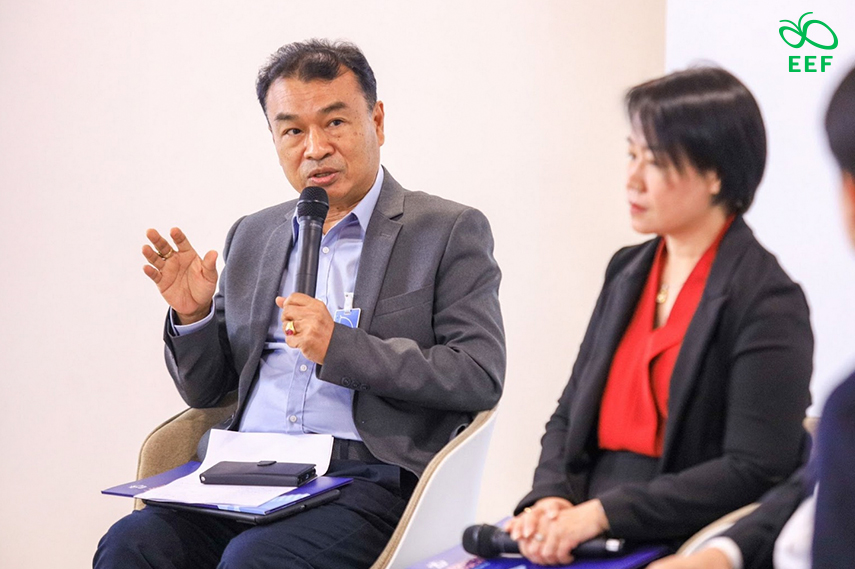
Mr. Charoenlak Phetpradab, Secretary, Khon Kaen Community for the Future Foundation
Unleashing Khon Kaen’s Potential: Reforming Education and Digital Skills for a Smart City Future
Khon Kaen Province stands as an economic and educational hub in the region. While the province offers several universities and educational resources, “There is a need to address the lack of financial skills, literacy, and analytical skills for the 21st century and the importance of connectivity and a better platform for foundational skill development is needed to be created.” Mr. Charoenlak Phetpradab, Secretary of Khon Kaen Community for the Future Foundation said.
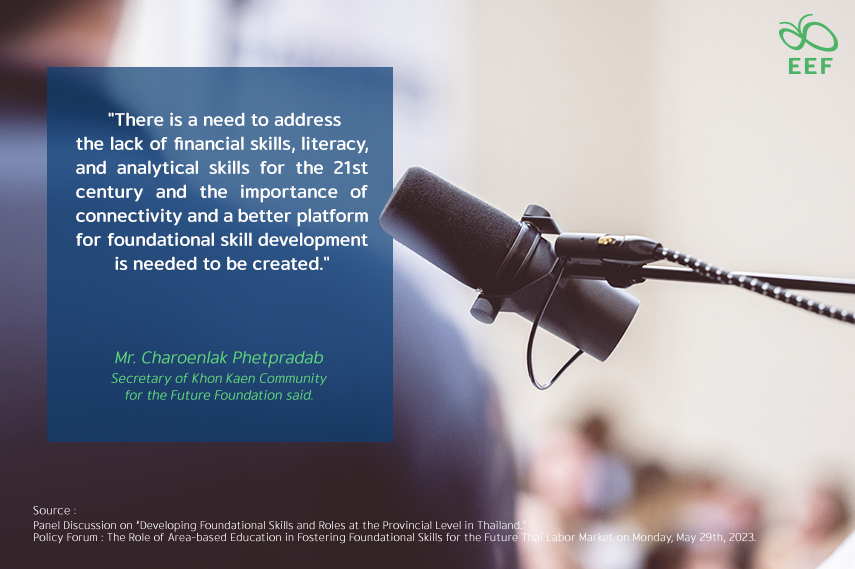
The Office of the Non-Formal and Informal Education (ONIE) collaborates with stakeholders, including the Khon Kaen Pattana Co., Ltd., a registered company focused on smart city development. Digital literacy skills are promoted through a central platform incentivizing students with digital coupons to further their education and prevent dropouts. EEF has allowed the Khon Kaen Community for the Future Foundation to coordinate Area-based Education (ABE) in Khon Kaen. The foundation has collaborated with stakeholders, including Khon Kaen City Development (KKTT) Co., Ltd., to drive the Smart City Development project. Recognizing the limitations of the government in decision-making, Mr. Charoenlak also highlighted the importance of private-sector collaboration, particularly with KKTT, a registered company focused on smart city development. The key focus areas are human resources and education, emphasizing digital skills and the long-term development plan for Khon Kaen as a smart city. To promote digital literacy, KKTT has established a central platform called KGO, which utilizes a digital coupon called “KGO token” to incentivize students and prevent dropouts. The platform has already been implemented in Khon Kaen and will be expanded to other cities. ABE Khon Kaen has formed partnerships with educational institutions, supporting organizations, and private entities, involving 30 organizations. The private sector and civil society organizations (CSOs) involvement is crucial in addressing foundational and digital skills issues in Khon Kaen. Mr. Charoenlak emphasized the need for new learning centers in the province. He mentioned that the EON-XR Platform , a digital tool developed by the private sector, is a potential solution similar to UNESCO’s efforts in addressing education-related matters.
Efforts are being made to establish new learning centers and address social-emotional skills. Khon Kaen’s readiness and talent in smart city development create a favorable environment for addressing the digital skills required for the future economy.
 Somsak Paniengtong, a committee member for Area-based Learning Development in Rayong
Somsak Paniengtong, a committee member for Area-based Learning Development in Rayong
Empowering Rayong’s Future: Bridging the Gap between Education and Industry Needs
In Rayong Province, collaboration among all sectors is vital in creating a smart and livable city in the Eastern Economic Corridor (EEC). Somsak Paniengtong, a committee member for Area-based Learning Development in Rayong, acknowledged the resource challenges but highlighted the provincial educational strategies, which required three processes to address the issue; mutual belief and understanding, planning, and action. Efforts are being made to address the mismatch between education and industry needs caused by most local parents’ emphasis on undergraduate degrees.

Rayong established “The Rayong Inclusive Learning Academy (RILA), the Learning Institute for people of all ages, to address the lack of skilled workers and support a livable city. Starting with the first children’s development center as a pilot project, the project accepts newborns to 2 and a half years old. Rayong has also joined the Education Sandbox Project, which can help improve the education system. Rayong plans to upskill, reskill, and build new skills for the workforce to address the lack of skilled workers and support a livable city. Rayong aims to develop a balanced, fair, equal, and inclusive learning environment by unifying efforts through area-based education and provincial strategies. Curriculum design, involvement of teachers, and after-school activities are considered essential elements of education beyond the classroom. The coordination of multiple partners and collaboration with organizations like the EEF helps reduce educational disparities and foster innovation in learning.
In conclusion, Lampang, Pattani, Khon Kaen, and Rayong Provinces are actively working towards educational development and ensuring that children and youth receive a quality education. By integrating foundational skills, addressing local issues, and fostering collaboration among stakeholders, these provinces are taking important steps toward a brighter future for their communities.
Source:
Panel Discussion on “Developing Foundational Skills and Roles at the Provincial Level in Thailand.” Policy Forum: The Role of Area-based Education in Fostering Foundational Skills for the Future Thai Labor Market on Monday, May 29th, 2023.
Event Record: https://www.facebook.com/EEFTH/videos/638069488226857/

